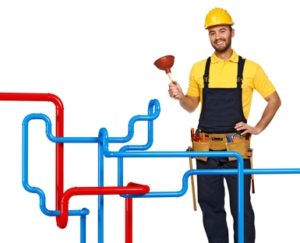Signs Your Home Needs To Be Repiped

Does Your Home Need To Be Repiped?
As with all things, the water pipes in a home will wear out over time. As they age, they will require repair or replacement. Replacing the pipes in a home can be a significant investment in money and time. Knowing what condition a home’s pipes are in, and how to recognize signs of trouble, will help in planning for when replacing the water pipes becomes necessary.
Knowing what types of water pipes are present in a home, and their age will provide a rough estimate of their remaining life. Supply water lines that are made of brass or galvanized steel have a lifetime of 20 – 50 years. Copper pipes typically last longer than 50 years because they are less likely to corrode. Cast-iron drain lines can last 75 – 100 years and PVC pipes can last indefinitely. Remember though, a pipe’s lifespan can be dramatically affected by the quality of water running through them. In areas with hard water or water that is slightly acidic or basic, corrosion will happen faster. Good quality water can extend the life of your water pipes.
Where ever possible, water pipes should be inspected on a regular basis. Often the first signs of corrosion will show up on the pipes as stains in insulation, flaking of the pipe, or dimpling of its surface. Pinhole leaks can also start to occur as the pipes weaken. Water pipes often start to corrode and weaken at joints first, due to changes in the direction of water flow causing turbulence. These areas should be inspected wherever possible.
Galvanized steel and cast iron pipes will begin to corrode from the inside out. Over time they will form a mineral deposit on the inside of the pipes. This deposit will reduce the inside diameter of the pipes, causing drains to run slow and water pressure to drop. Frequently clogged drains that are difficult to clear are a sign this is happening. Another indication that metal pipes are corroding is rust or an odd, metallic flavor in water from a faucet.
Need to repipe your Birmingham home? Call Latta Plumbing now at 205-631-6445 and schedule a service call today!
